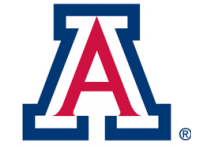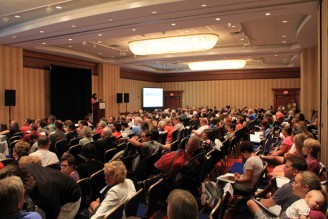World Down Syndrome Congress: Setting a Global Scene
August 13th, 2012 by Global Down Syndrome Foundation
 The Global Down Syndrome Foundation’s Director of Operations and Government Affairs, Michelle Livingston, is in South Africa for the World Down Syndrome Congress this week. Over the next several days, she’ll provide updates on the conference, the people, the research and how it all relates to the global human rights of people with Down syndrome.
The Global Down Syndrome Foundation’s Director of Operations and Government Affairs, Michelle Livingston, is in South Africa for the World Down Syndrome Congress this week. Over the next several days, she’ll provide updates on the conference, the people, the research and how it all relates to the global human rights of people with Down syndrome.
Dear Readers,
I am fortunate to be representing the Global Down Syndrome Foundation this week at the World Down Syndrome Congress in Cape Town, South Africa, along with my husband, David, and Patti McVay, Education Director at the Linda Crnic Institute for Down Syndrome. We are so excited to have the opportunity to network, tell others about the great work we are doing at Global, and above all, LEARN. We have so many questions: What kind of medical care do people with Down syndrome receive? What research is being done? What are the beliefs about Down syndrome in the rest of the world? We will also be visiting some of the local medical clinics, and I am looking forward to sharing what we learn, good and bad, with our U.S. community. The conference starts Wednesday, and we will be posting updates throughout the week.
Down syndrome does not discriminate based on race, nationality, socioeconomic status, or religion. As I sit down to our first breakfast here, I am happily reminded of this fact. Next to us are Americans, across is an English family, and a little to our right is an Indian family; all have a family member with Down syndrome at their table. Like me, they are thrilled with the massive breakfast buffet.
At lunch out on the Harbor, we run into a Dutch mother and her beautiful adult daughter, Ninka, who happens to have Down syndrome. Ninka speaks both Dutch and English fluently and lived in Seattle for several years. We visit a little, and commiserate about our fear of heights and hesitancy to get on the local Ferris wheel despite the great views. Her mother, Hilde, tells me a little about Holland’s education system and the lack of inclusion. Their sushi arrives, and David and I leave them to their lunch, but I can’t wait to see them again and learn more throughout the week.
“A person with Ubuntu is open and available to others, affirming of others, does not feel threatened that others are able and good, based from a proper self-assurance that comes from knowing that he or she belongs in a greater whole and is diminished when others are humiliated or diminished, when others are tortured or oppressed.” — Desmond Tutu
In South Africa (and many other African countries), there is a philosophy known as Ubuntu, meaning “I am what I am because of who we all are.” Desmond Tutu described it best:
“A person with Ubuntu is open and available to others, affirming of others, does not feel threatened that others are able and good, based from a proper self-assurance that comes from knowing that he or she belongs in a greater whole and is diminished when others are humiliated or diminished, when others are tortured or oppressed.”
People with Down syndrome bless our world with a wonderful diversity. Our commitment to ensuring basic human and civil rights for all people is reflected in how well we as a society — not just in our neighborhoods, our cities or our countries, but throughout the world — respect, embrace and and promote that diversity. We can use events like the World Down Syndrome Congress to further that message around the globe.
Totsiens for now!
Michelle Livingston
Director of Operations and Government Affairs
Down Syndrome Research Expanding Across the U.S.
August 7th, 2012 by Global Down Syndrome Foundation
 The University of Arizona announced it has received more than $1 million in grant funding over the past four years as its Down Syndrome Research Group works toward being a leader in Down syndrome research. The funding came from the Down Syndrome Research and Treatment Foundation and Research Down Syndrome.
The University of Arizona announced it has received more than $1 million in grant funding over the past four years as its Down Syndrome Research Group works toward being a leader in Down syndrome research. The funding came from the Down Syndrome Research and Treatment Foundation and Research Down Syndrome.
At the Global Down Syndrome Foundation, our primary focus is funding the Linda Crnic Institute for Down Syndrome at the Anschutz Medical Campus, and we’re encouraged by the expansion of research efforts across the U.S. and excited to see what comes out of the new efforts and the potential for collaboration. Because Down syndrome is the least-funded genetic condition by the National Institutes of Health, it is crucial to show that the need, desire and support exist to fund more research.
At the University of Arizona, faculty, staff and students will focus on a broad range of topics, from medical and health care issues to quality-of-life problems faced by those with Down syndrome and their families.
Like the Crnic Institute, which recently added renowned scientist Huntington Potter to focus on the link between Alzheimer’s disease and Down syndrome, the University of Arizona plans to give a lot of attention to that issue. Studies show that one the main genes responsible for Alzheimer’s disease is on the 21st chromosome and is therefore more active in people with Down syndrome, who have three copies of chromosome 21 instead of two.
A lot of progress has been made on care and research, but we still have a long way to go. News about this kind of funding highlights the growing support for the Down syndrome community. Let’s encourage each other to keep up the pressure for more government funding and spread the word about all the potential that research holds. You can reach our advocacy page here to learn more about how to contact your representative in Congress.
One Day on the Hill, Hundreds of Voices for Change
July 31st, 2012 by Global Down Syndrome Foundation

The Down Syndrome Day on the Hill brought 500 advocates to the U.S. Capitol.
The Global Down Syndrome Foundation and the National Down Syndrome Congress organized 500 concerned citizens, including 176 self-advocates, who brought influential and inspirational voices to the steps of the U.S. Capitol on July 19 for the Down Syndrome Day on the Hill.
The Down Syndrome Day on the Hill is the single-largest group of self-advocates and their families ever to push for legislation benefiting people with Down syndrome.
The event gave participants a voice in influencing public policy through more than 100 direct meetings with senators and representatives.
Day on the Hill participants were trained the night before the event on the best ways to advocate for government action in four areas (Click here to see the presentation):

Global Down Syndrome Foundation Executive Director Michelle Sie Whitten leads a training session for advocates before the Down Syndrome Day on the Hill.
1. Ensuring greater parity in Down syndrome research and development by urging legislators to co-sponsor the Trisomy 21 Research Centers of Excellence Act (HR 2695/S 1840) and the Trisomy 21 Research Resource Act (HR 2696/S 1841) and urging increased funding for Down syndrome research at the National Institutes of Health. Down syndrome is the least funded genetic condition by the NIH, despite being the most frequent chromosomal disorder.
2. Ensuring access to a safe, healthy environment in schools by reducing the use of restraints and seclusions by calling on lawmakers to co-sponsor the Keeping All Students Safe Act (HR 1381/S 2020).
3. Protecting against continued cuts in Medicaid and other entitlement programs, and considering legislation to aid the transition of youths with significant disabilities into adulthood. Advocates pressed lawmakers on the Transition Toward Excellence, Achievement and Mobility legislation in the House (HR 602 and HR 603) and the introduction of similar bills in the Senate.
4. Supporting legislation to improve the economic advancement of people with Down syndrome and their families through the Achieving a Better Life Experience (ABLE) Act (HR 3423/S 1872).
Our friends and co-organizers at the National Down Syndrome Congress, who were holding their 40th annual convention that weekend in Washington, have posted some great photos of the Down Syndrome Day on the Hill on their Facebook page. Click here to see some of the activities.
The Global Down Syndrome Foundation would like to thank Soapbox Consulting for its fabulous job in helping coordinate the Day on the Hill congressional meetings.
For more information on how to contact your representative, access the Global Down Syndrome Foundation’s advocacy toolkit.

 Experience our inspirational and groundbreaking videos and photos. Our children and self-advocates are beautiful AND brilliant!
Experience our inspirational and groundbreaking videos and photos. Our children and self-advocates are beautiful AND brilliant! Make sure your local Representatives are on the Congressional Down Syndrome Task Force.
Make sure your local Representatives are on the Congressional Down Syndrome Task Force.